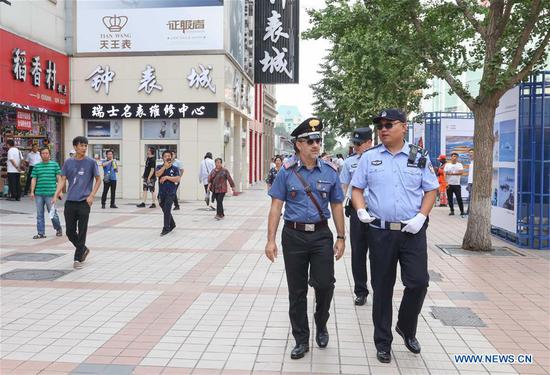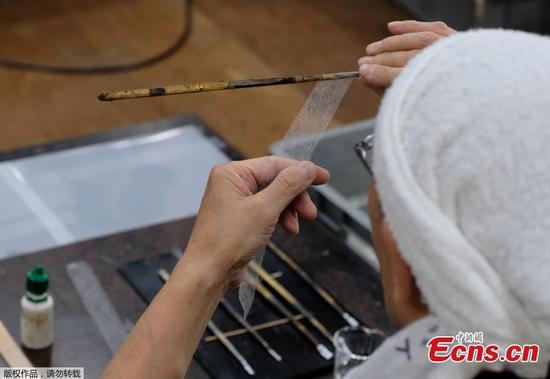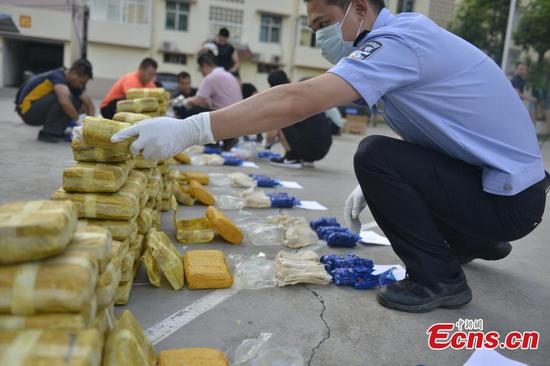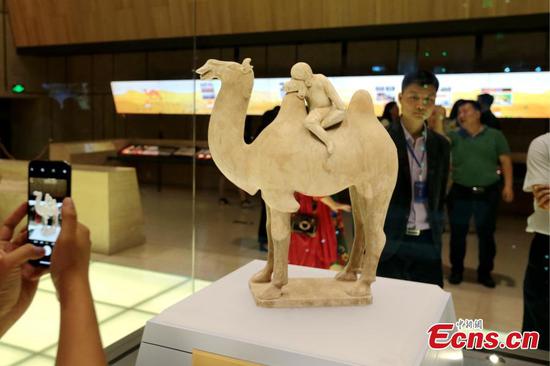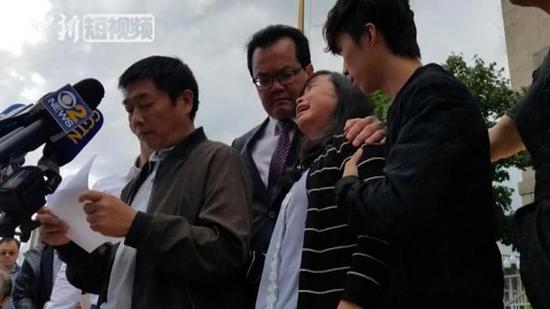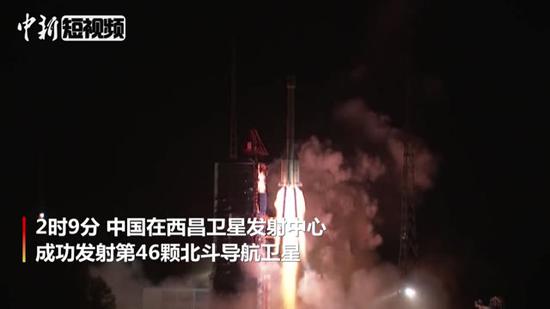
Doctors at the hospital provide real-time instructions for an operation in Gaozhou, 400 kilometers away, via a screen in a multimedia room. [ZHANG JIAYANG/XINHUA]
Improved services
With a data transfer speed at least 10 times faster than 4G technology, 5G has a time lag of just one-tenth of a second. It has helped to inject new vitality in county hospitals like the People's Hospital of Gaozhou in southwestern Guangdong, which performed more than 100 minimally invasive operations last year.
Although excellent at treating cardiovascular diseases, the hospital still lags far behind provincial hospitals in terms of quality of treatment. For a recent operation on a 41-year-old female patient, the Gaozhou hospital invited Guo to provide advice and guidance in real time through its telemedicine platform.
Sitting in an operating room in Guangzhou, a six-hour drive from Gaozhou, Guo used a video marker to highlight an area of the patient's body and told the lead surgeon to move the cutting point 3 centimeters higher to avoid damaging a nerve.
Without 5G technology, Guo would have had to freeze the image to draw, but the surgeon might have already moved on or been unable to see clearly, thereby missing Guo's instructions.
Local phone carrier Guangdong Mobile and tech giant Huawei have provided technical support for 5G surgery.
Two weeks before the operation, Guo's team used a 5G connection to build a 3D heart model using images provided via a computerized tomography, aka CT, scan, which produced a 360-degree view of the heart.
County hospitals are not capable of building 3D models. Previously, gigabyte-sized CT images had to be transferred between hospitals by hard drive or downloaded from the internet over several hours, but it now only takes a few minutes on the 5G network.
"We could see the (heart) deformities clearly. The 5G system helped to reduce errors and improve efficiency," Guo said, adding that he believes 5G will help medical staff in remote areas to master heart surgery faster.
A trainee has to practice at least 100 times before becoming a lead surgeon in a minimally invasive operation. In times gone by, local medical staff had few opportunities to learn from well-trained surgeons, and the county hospital only invited professionals from Guangzhou to help with operations four or five times a year.
The 5G-assisted services, which come at a lower cost than previous systems, can also help county hospitals attract more patients.
He Yong, chief surgeon at the county hospital in Gaozhou, calculated that such an operation would cost the patient 20,000 yuan ($2,900) if performed by local staff members, and another 10,000 yuan if specialists were involved.
However, if the patient chose to have the surgery in Guangzhou, the cost would rise to 40,000 yuan and the family members would have to make additional payments for accommodations and travel, He said, adding that surgery via 5G requires no extra payment.
















